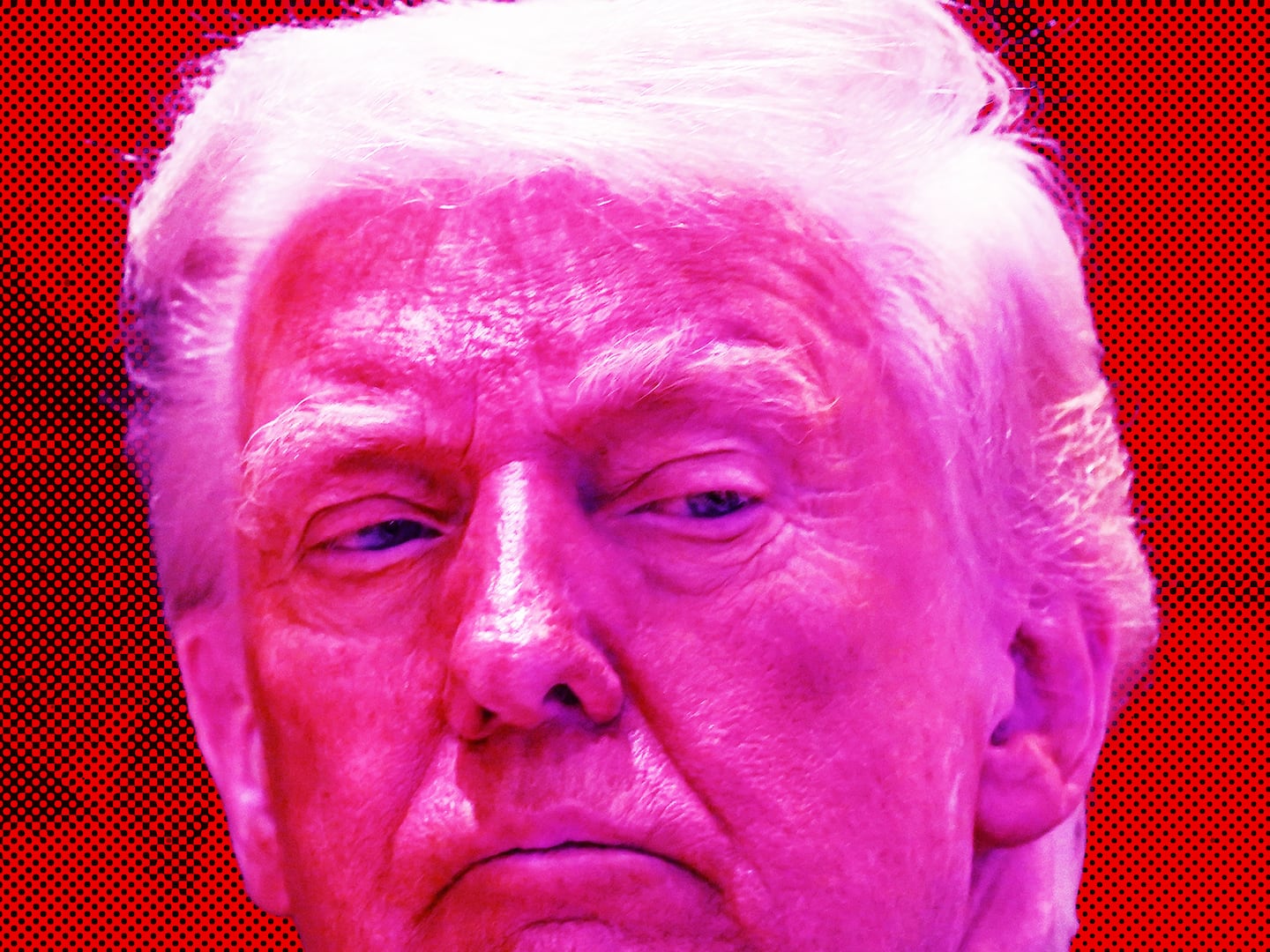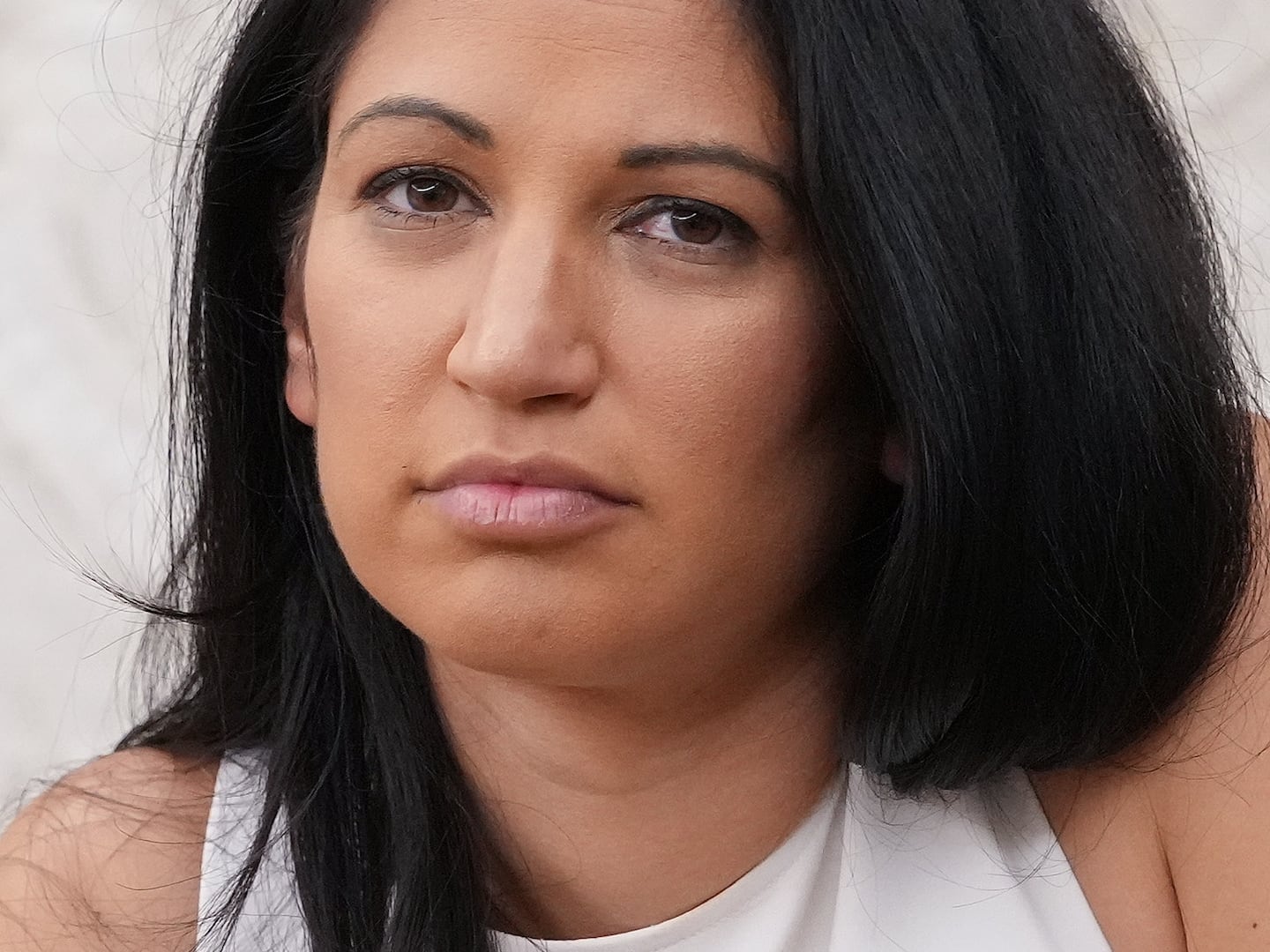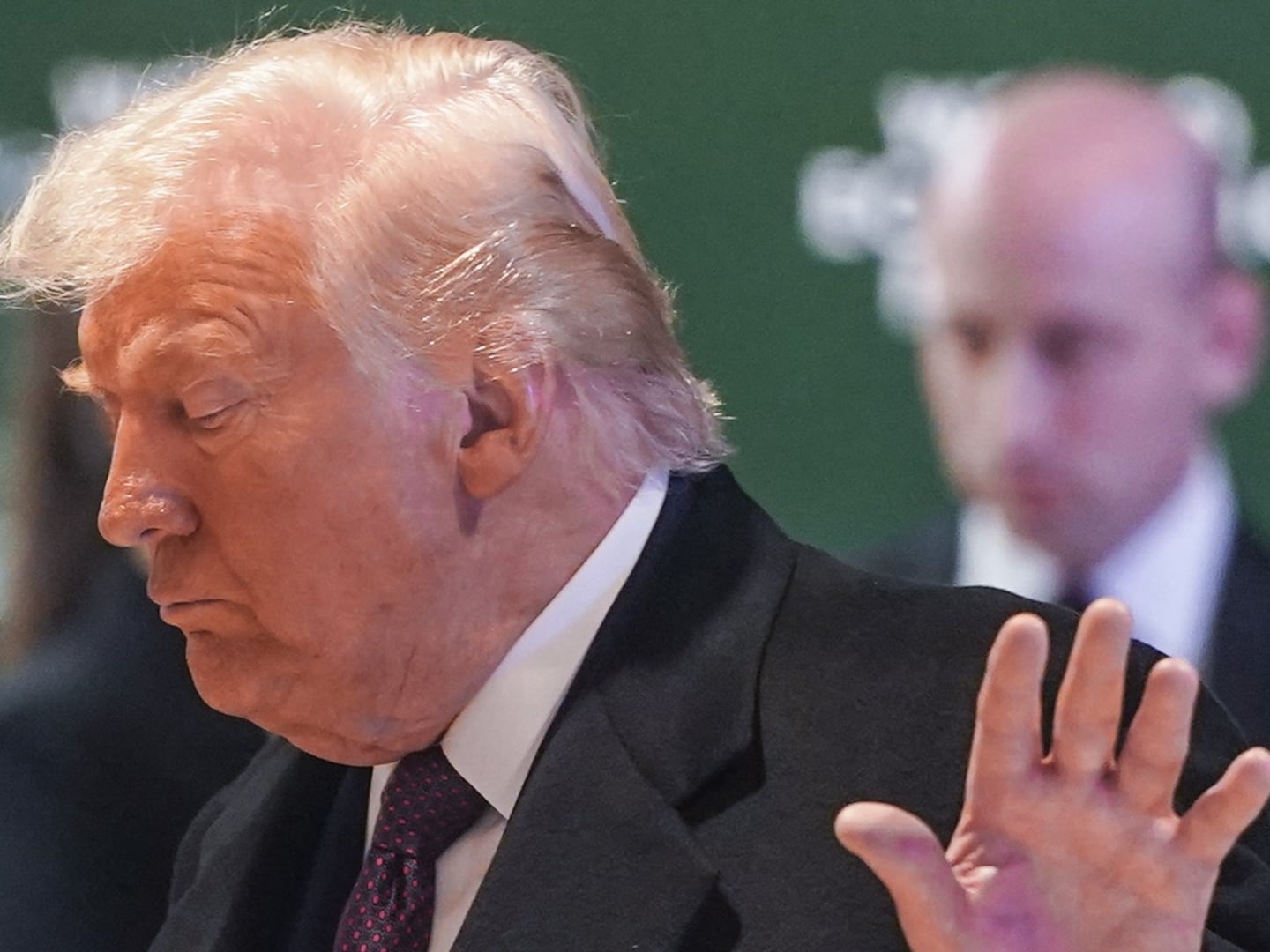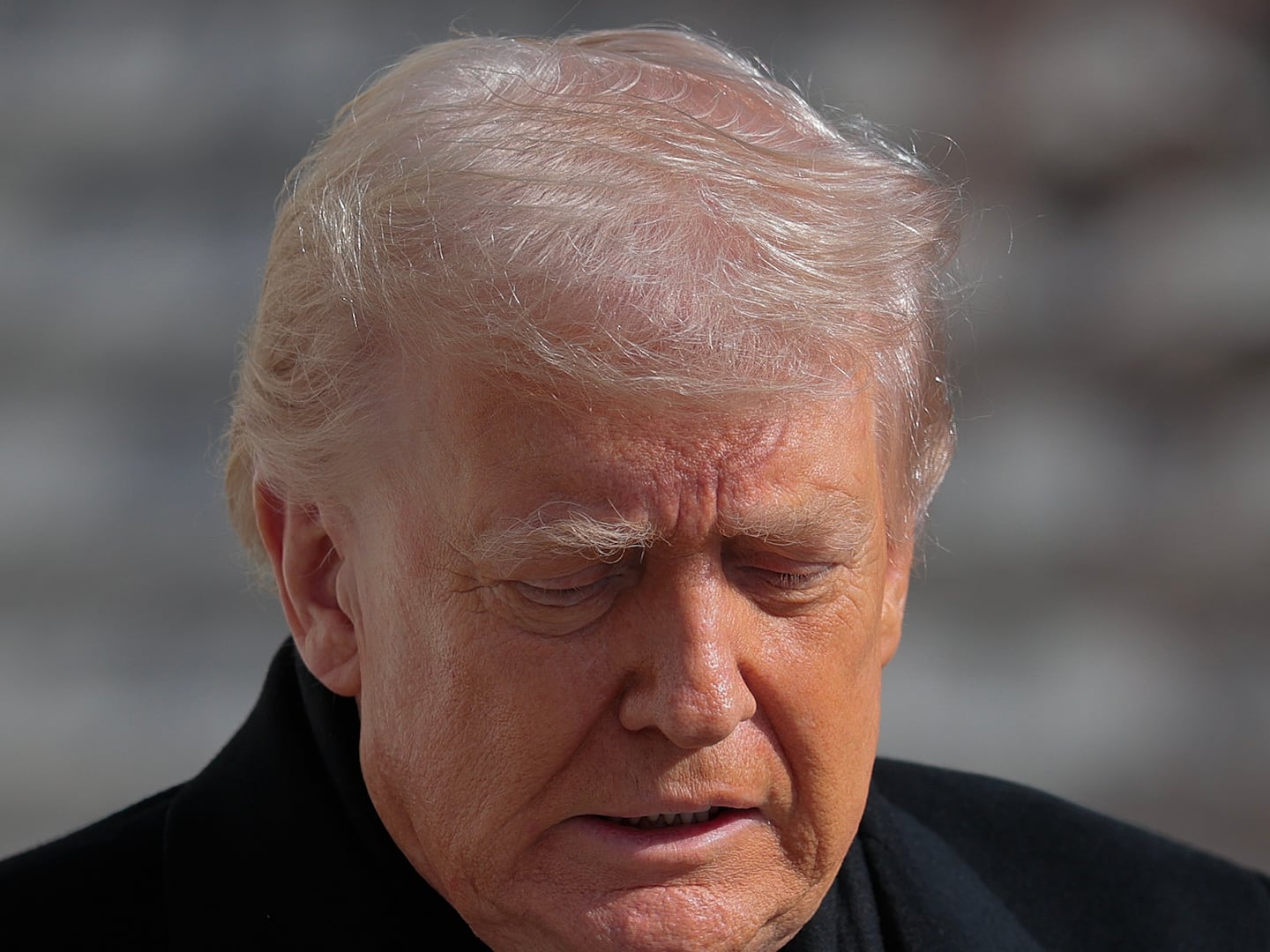There are a couple of hundred well turned out, professional women sipping $9 white wines at the Sheraton Hotel in downtown Philadelphia, and Allyson Schwartz is determined to kiss every single one of them on the cheek.

It’s not hard, as they are all gathered for a fundraiser for a nearly 40-year-old women’s health group that Schwartz helped found, and so she seems to know half the room.
“I tell everyone, ‘Vote for my girl, vote for my girl!’” says one older woman after emerging from her own cheek peck.
Another grabs Schwartz by the shoulders and looks searchingly into her face. “Tell me,” she implores. “Are you OK?”
In eight days, the voters of Pennsylvania have a chance to make Schwartz the first female governor in the state’s history. Last year, the five-term congresswoman and political powerbroker from the upper reaches of Philadelphia and its wealthy northern suburbs was up by as much as 25 points and looked like a shoo-in for the Democratic nomination. With Republican incumbent Tom Corbett notching some of the lowest approval ratings in the country, Schwartz could have been forgiven if she had started to measure the drapes in Harrisburg.
Now she is down by nearly that much. While her campaign was buried under an avalanche of gauzy television advertisements from wealthy businessman Tom Wolf, who now holds a commanding lead in the polls, the Schwartz campaign was knocked off course by a surprising incident toward the end of last year.
In an op-ed in The Wall Street Journal, two leaders of Third Way, a pro-business, centrist Democratic group that listed Schwartz as an “honorary co-chair,” warned the Democratic Party against following the example of New York City Mayor Bill de Blasio and Massachusetts Sen. Elizabeth Warren, whose elections the previous two Novembers seem to herald a new, emboldened left flank. De Blasio’s and Warren’s ++ideas about reducing inequality++ [], the Third Way leaders wrote, were “a fantasy-based blue-state populism” that would lead the party over “the populist cliff.”
Progressive groups and bloggers were outraged, and Schwartz’s rivals, seizing on the dust-up, hammered the congresswoman for her association with the group. The campaign, her advisers acknowledge, was rattled. Schwartz eventually dropped her association with Third Way, but the polls have been trending downward ever since.
So Schwartz has come to the Sheraton, among voters she describes as “my people,” to engage in hand-to-hand, or more like cheek-to-cheek, combat in the race’s final days.
“People are huddled very tightly together,” Schwartz says to an aide as she surveys the room. “It can be hard to find a way in.”
A group of two women are from New Jersey. Another group doesn’t seem to recognize her. “I’m Allyson Schwartz. I’m running for governor. Sometimes you are on TV and you just think everybody knows who you are, but they don’t,” she says, apologizing on their behalf.
Another woman comes up to Schwartz and introduces herself. “You have done so much for the venture capital community,” she says as the congresswoman, seemingly aware of a reporter’s presence, smiles tightly.
Earlier in the afternoon, sitting around an enormous circular table that her spokesman jokes is like the Star Trek Enterprise, Schwartz didn’t much want to discuss whether she was the first scalp of a newly resurgent left wing of the Democratic Party.
“I don’t know,” she said. “Let’s look back and analyze it later. I don’t think—I mean, it is so interesting to me because there are ways people challenged me at the time to be liberal to win the state, and then also challenging me to be not progressive enough to win the state. In some ways, I think that is where Pennsylvanians would want me to be, which is to be really progressive on many of the issues that we all care about together.”
It’s true—at the beginning of the campaign season there was some grumbling in Pennsylvania Democratic circles that Schwartz was actually too far to the left to win a general election. But that was mainly because before Schwartz entered politics, she operated a women’s clinic where abortions were performed, and she has been an unapologetic advocate for abortion rights in the years since. She was one of the earliest supporters of same-sex marriage in the Pennsylvania legislature, and she has a perfect record from a local gun control group on curbing restrictions to firearms.
And so even as Schwartz talks about the need to increase education funding and protect the environment, it is a testament to how much the ground has shifted among Democratic partisans that unless you are willing to talk about taking a pound of flesh from Wall Street and proclaim the game rigged, it is hard to get many votes.
“In the ’90s, when Clinton was president, it gave some credence to groups like Third Way,” said one local political operative. “I think at the time when income inequality is such a central issue and we have gone through the financial collapse and it seems like Wall Street was responsible for it, the country just isn’t there anymore. Groups that have been pushing Democrats to be more corporate-friendly at the expense of spending on social issues are living 20 years past their expiration date.”
How much has the Democratic Party of Pennsylvania moved to the left? Consider this: When Schwartz won her seat in the suburbs in 2004, it was carved out to elect a Republican. She beat one and held the seat for 10 years, and now a front-runner to replace her is Daylin Leach, a state lawmaker who proudly calls himself “The Liberal Lion of Pennsylvania.” Leach received the endorsement of Sen. Bernie Sanders and is threatening to hold a sit-in in Gov. Corbett’s office to bring attention to the issue of medical marijuana.
“She’s a centrist. She wanted to run as a progressive, but her voting record and her associations disproved it,” said John Hangar, a one-time candidate who before dropping out jumped on Schwartz’s Third Way connections. “Economic unfairness is moving public opinion. Two years ago, proposing a $10.10 minimum wage would have made you a radical. Now it’s like, ‘We already got that.’ There is something going on in the political world of the average worker that is causing them to favor strong, liberal actions, and I think Allyson probably missed that.”
For her part, Schwartz backs a $10.10 minimum wage. She supported the bailout of the banks but wanted stricter oversight, too, supporting the creation of the Consumer Finance Protection Bureau.
But she also thought the Bush tax cuts should be extended for everyone making less than $500,000, double what many liberals called for and more than what President Obama favored. “In my district, there are families that make $200,000 that don’t feel enormously wealthy, so I was open to that discussion,” she says. The government, she adds, “has to create the environment for private-sector growth. Now, some progressives are critical of that. On the federal level, I have been clear: The country needs to balance its budget and deal with its debt.”
Still, she says she feels as if progressive groups wanted to make “an example of her.”
“I don’t think it was personal,” she sighs. “But there it was.”
“There are right-wing organizations, [and] there are progressive organizations that just care about an issue and that do use the opportunity of campaigns to push candidates further where they want to go,” she says. “It is less about me than it is about pushing all the candidates further.”
One of the oddities of Pennsylvania’s Democratic gubernatorial race is that there are not really many differences between the candidates. If Wolf is the liberal champion, he is something of an unlikely one, as he made a fortune in the business world and jump-started his campaign with $10 million of his own money.
“I think we are not so different,” Schwartz says of her rivals. “It is more about personality and who we are and who comes from the most troubled background and has risen better. Who has gone to an Ivy League school and who hasn’t.”
Although polls now show Schwartz trailing, she insists there is still time and that people are just now tuning in. And so she is campaigning at a sprint. As she ducked out of the Sheraton fundraiser, she met a group of women coming at her on the up escalator. They began to applause.
“Thank you, thank you. Tell everyone you know to vote May 20. Take the day off!”
She hustled into a SUV and dashed up the Pennsylvania Turnpike toward the town of Bethlehem, making fundraising calls along the way. She was slated to speak at the local Democratic club’s Jefferson Jackson Day Dinner, the only candidate in the field who bothered to show. Traffic was terrible, though, so only a few dozen people gamely remained to pick over the vegetable spread and drink beer. They listened as a political science professor at a local college explained how changing demographics were changing the region’s politics, making it less “labor liberal and more progressive liberal.”
When Schwartz finally arrived, she gave a version of her sunny stump speech. It was heavy on her accomplishments from her career in Congress and the legislature, and the subtext was clear: It is not anger that Pennsylvanians need, or fiery rhetoric. They need somebody who can work within the system to get something done.
The sparse crowd was full of Schwartz partisans, and they wondered why she wasn’t doing better.
“People are just angry, that’s all,” said one local pol. “They see what is happening, and it is happening under their noses.”






